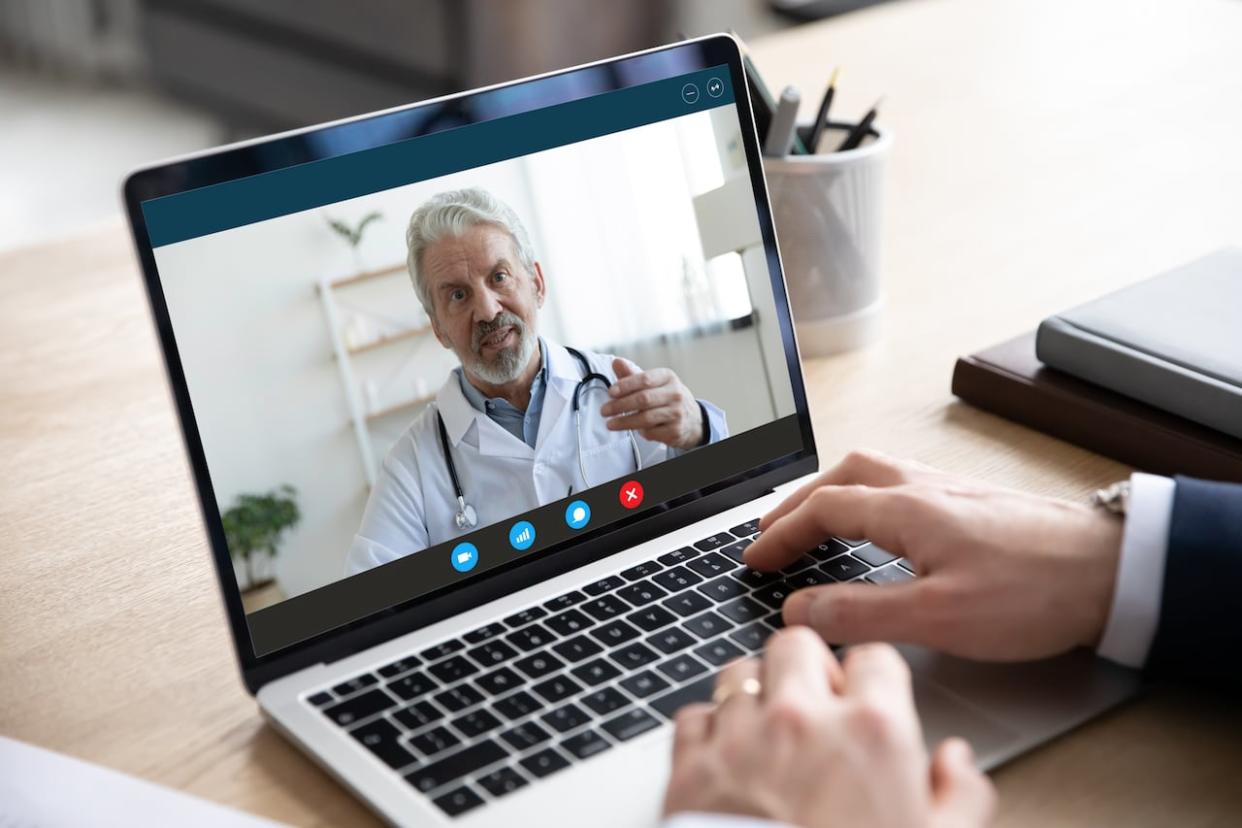A clinic in western Newfoundland is capitalizing on virtual tools to tackle demand


The health hub is open to residents living in Western Newfoundland, and it will use virtual care tools, such as phone and video calls, to connect patients without a family doctor to a provider. (Fizkes/Adobe Stock)
A virtual health clinic in western Newfoundland is aiming to provide more accessible health care to local residents without a family doctor — a situation familiar to tens of thousands of N.L. households.
So far, the regional virtual care clinic is able to keep up with demand for its services, especially as people learn that it even exists.
"Our call volumes definitely have increased over the last year as the unattached patient population increases and awareness gets out there around our service," said Erica Parsons, director of primary health care in the western zone of Newfoundland and Labrador Health Services.
Despite the rising demand for service, Parsons says that they are scheduling patient appointments with providers within three to five days. This is made possible by a team of healthcare professionals who are working both in-person and online.
Currently, she said, they are working on increasing awareness of the clinic's services, including with cards that are distributed throughout local emergency departments and by calling patients who have reported they are without a primary care provider.
This is done in the hope of reducing the pressures on emergency departments, she said.
Dr. Todd Young, a Springdale-based doctor who offers virtual health services through his company Medicuro, said in an interview he believes the future of health care will be a hybrid model of in-person and virtual care.
"A significant number of routine visits — especially those related to mental health, routine follow-ups of various lab tests and things like that — these make up a significant number of current visits to physicians and nurse practitioners," he said.
"All of these things can essentially be handled virtually."
Young said that through surveys and evaluations, he found that patients report positive feedback on services done virtually.
However, he said there is still some reluctance among health-care providers. He said some providers do not necessarily want to change the status quo of how their work is done.
According to Parsons, the most common method of connecting with a provider is through phone calls and online video calls with providers from Ontario who previously worked in the region, and providers across Newfoundland.
However, individuals can visit the clinic in person, where a nurse will be present to assist during a video call with a provider if necessary.
"We know that right now, many people do not have a primary care provider," Parsons said.
"So, by having a service like our regional virtual care clinic, we are able to address your primary health-care needs and your ongoing chronic disease management needs."
Download our free CBC News app to sign up for push alerts for CBC Newfoundland and Labrador. Click here to visit our landing page.


